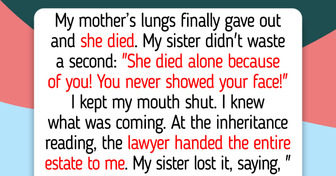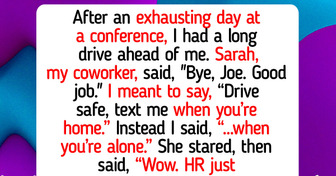A Divorce Lawyer Shares 10 Ways to Not Become Their Client

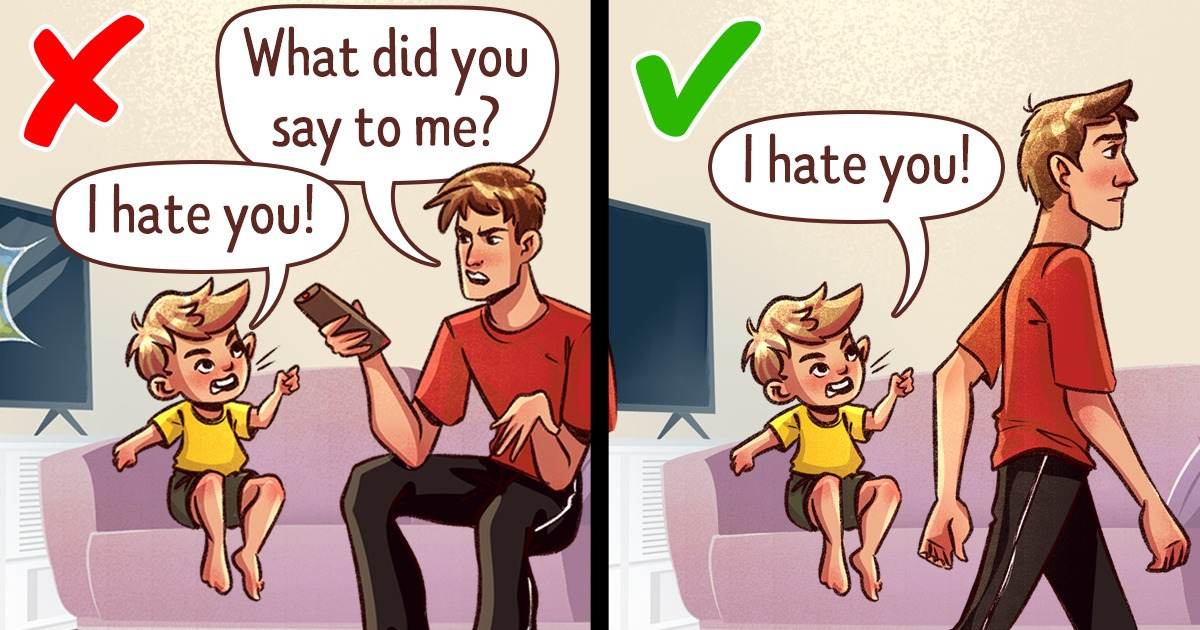
Temper tantrums are very common among kids between the ages of 1 and 3. They usually happen as a way for a child to show their emotions, and they can manifest through screaming, hitting, and even holding one’s breath. That’s because children at this age don’t have the ability to express their frustration with words, and it’s in their parents’ hands to address the issue and make the kid feel safe and calm.
Bright Side is no expert at raising kids, but we can offer you a few tips that might prove to be just what you need for the times your kid is having a tantrum.
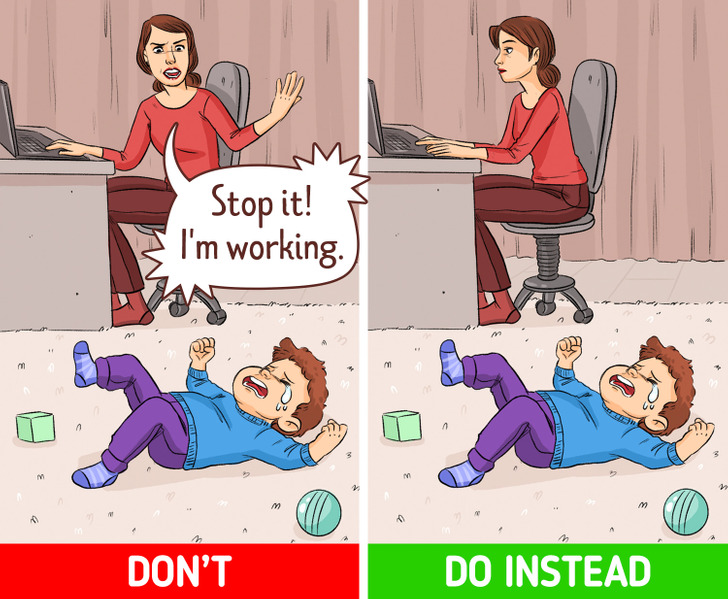
Trying to end a tantrum faster with useless methods, such as yelling at the child, isn’t effective. It’s better to sit back and let the kid yell and cry and allow things to calm down on their own. Once the child has finished their tantrum, they will start feeling a lot better and your words will have more meaning. You can also feel calm and be able to have a more productive discussion with your child about their feelings and what annoyed them.
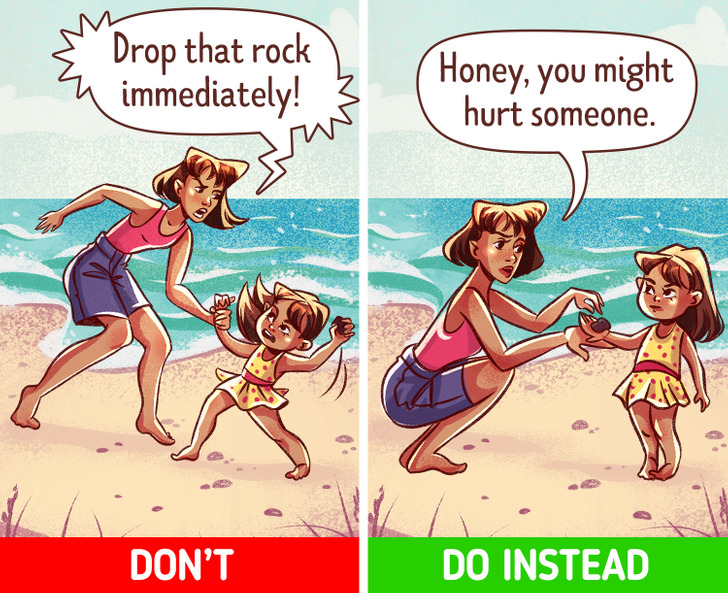
Yelling, crying, and banging their feet on the ground are very different from being aggressive, where they could start hitting, biting, or throwing things. For this kind of behavior, you can immediately remove the child from the situation and take them to a quiet place if you’re in public. If you’re at home, you can get close to your child and explain in a firm but not angry tone that it is not okay to become this aggressive. They can be as angry as they want with you, but getting physical is completely unacceptable.
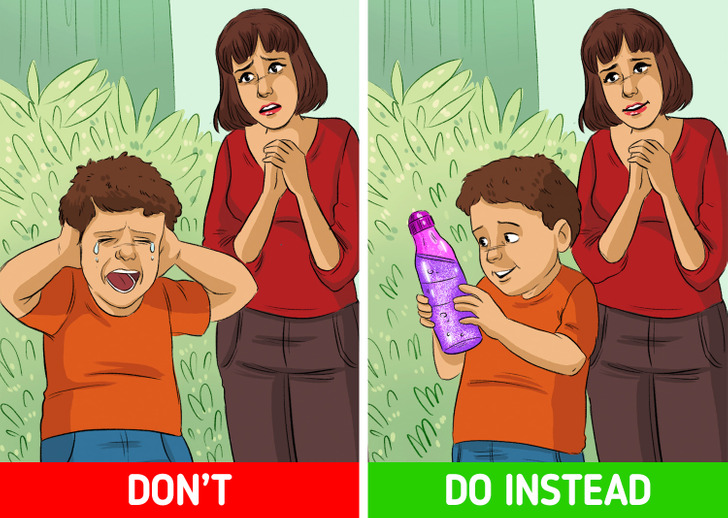
Children usually have very short attention spans, which means that what bothers them now can be forgotten in a few seconds. So, if they are creating a scene at a store because they want you to buy them something, you can distract them with something else. You can either give them an object or a toy that you know they will like, or you can show them something in the shop that might be of interest. It’s best not to create comparisons between your child and other children that happen to be quiet at that time.
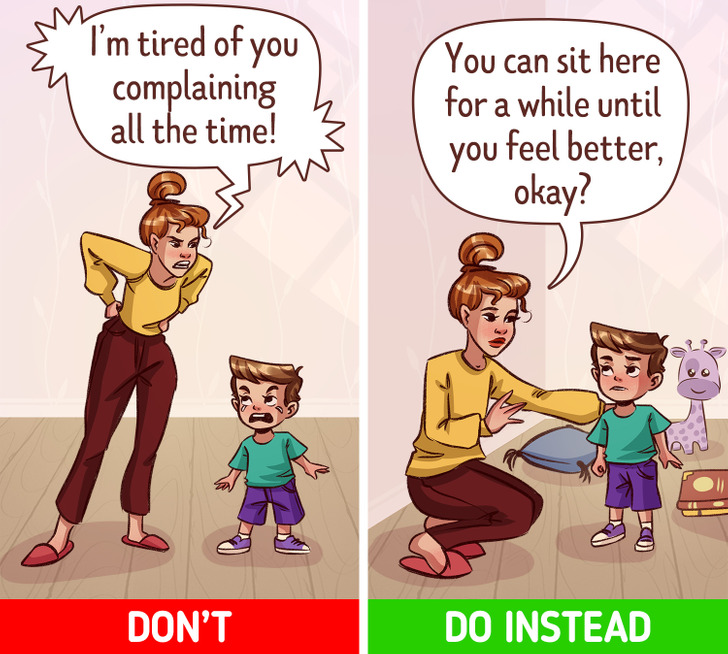
This is a method that many teachers in preschool follow, where they have a “chill out” spot. It could be a nice, warm corner of your house with soft cushions on the ground, books, toys, and other entertaining stuff lying around. When your child is upset or angry, you can encourage them to go sit in that corner and distract themselves with an activity. If they like painting, for example, you can keep a notebook with some colors in that space, so they can become peaceful faster.
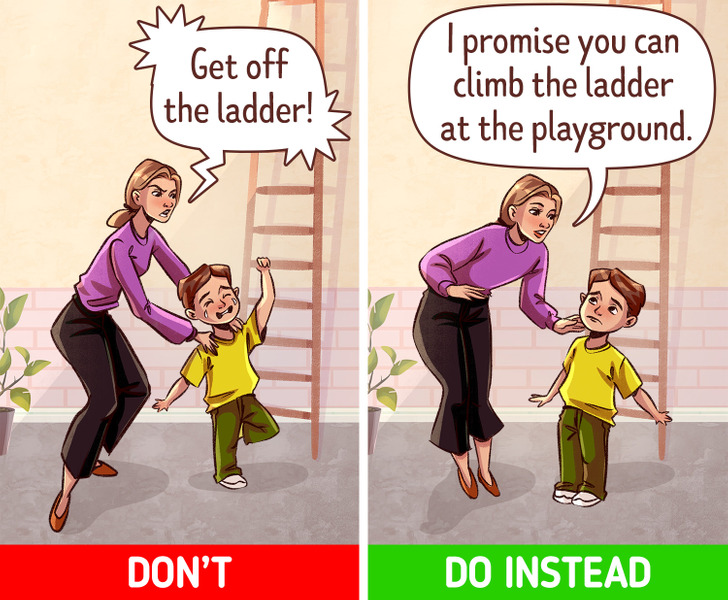
Children often want to do things that adults know are dangerous, but kids don’t understand that. They feel like you are blocking them from accomplishing something they really want. So, instead of yelling at them not to do something, you can offer them a similar alternative that will be a new goal for them to reach. It can be a safer version of what they want to do, and you can plan this new activity, so they have something to anticipate.
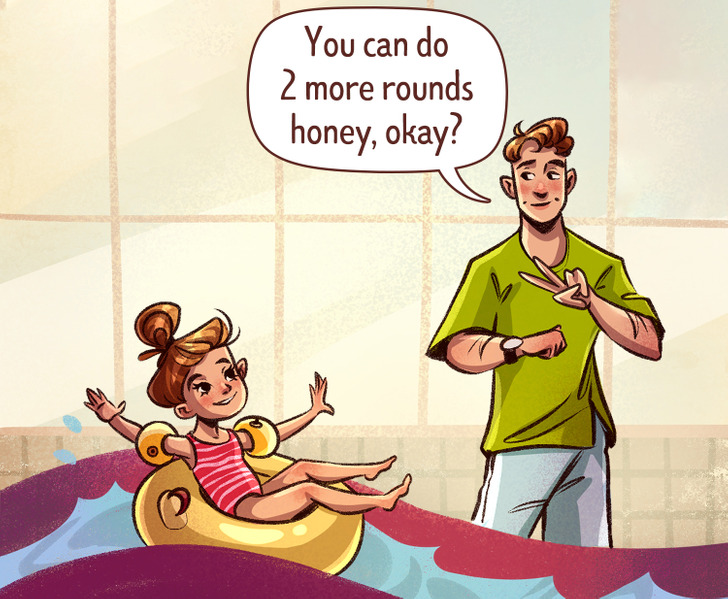
One thing children don’t enjoy is when you abruptly end their play time when they had no idea it was time to go. You can’t just tell them that you are leaving in 10 minutes, since they don’t have a sense of time at this point. What you can do instead is to tell them that they can play 2 more rounds of their game, and then you will leave. This is something that they can understand and will probably respect no matter how much they want to stay for longer.
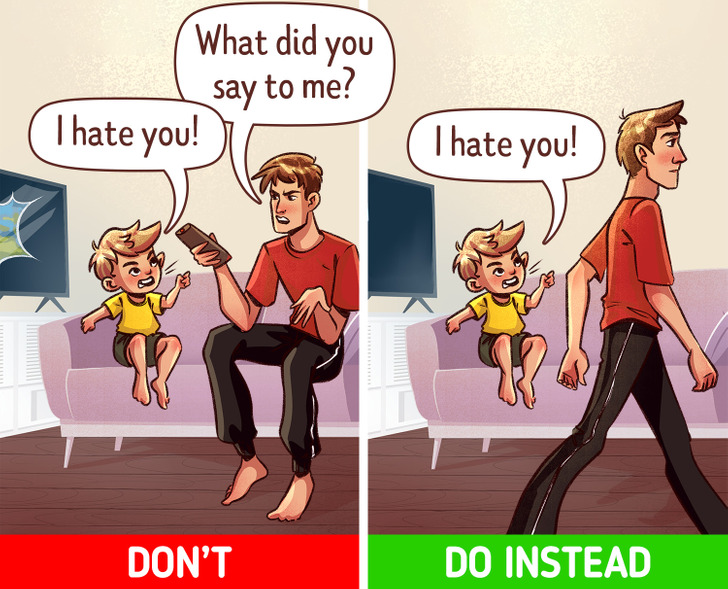
One of the most common phrases kids say when they are upset with adults is “I hate you!” And while it’s very easy to be offended and lash out at them, this is clearly the wrong way to go. They don’t really mean what they say, but it is just their way of expressing their frustration and making their feelings known. You’d better ignore it and stick to your plan without letting their bad behavior break you or make you upset.
How do you deal with your children’s temper tantrums? Do you finally break and do what they ask, or do you stay firm and wait until they follow your lead?









